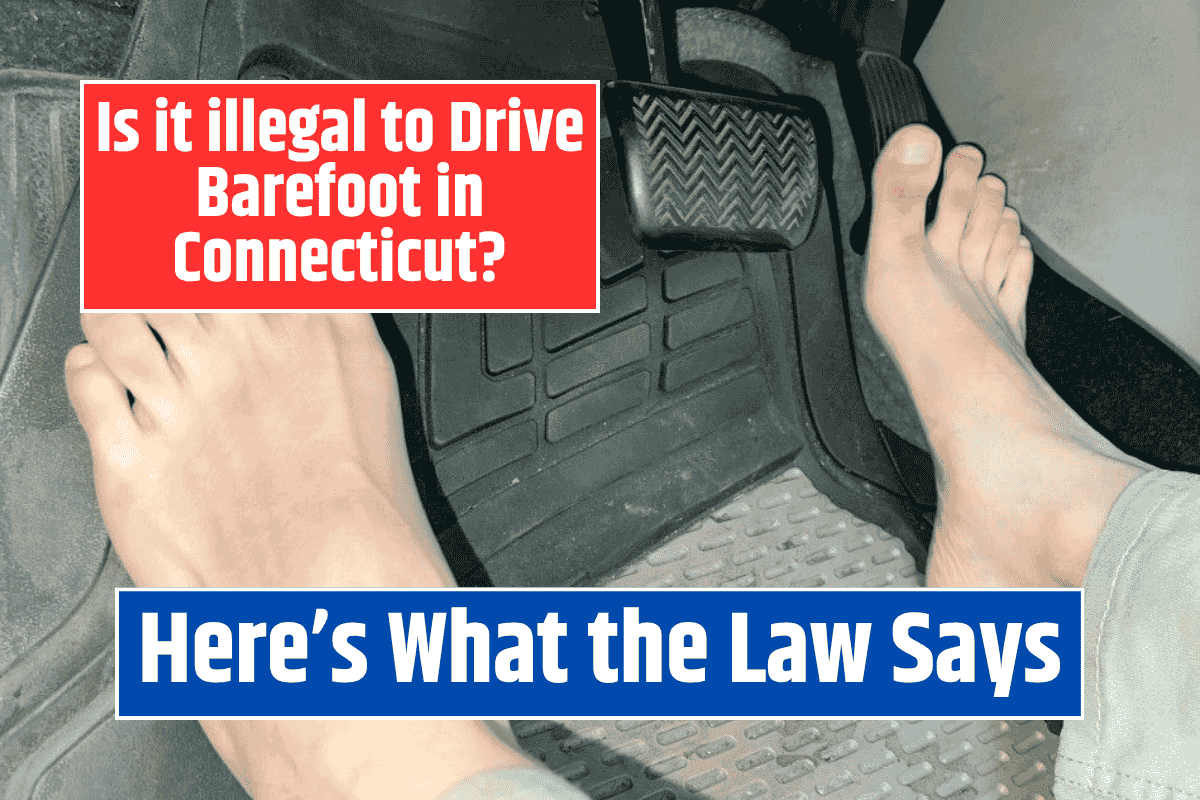Many people wonder if driving without shoes is against the law. It may feel more comfortable, especially during summer, but is it actually legal? In Connecticut, driving barefoot is legal, but that doesn’t mean it’s a good idea.
Let’s understand what the law says, what the risks are, and why driving with proper footwear is safer—even if not legally required.
Is It Legal to Drive Barefoot in Connecticut?
Yes, it is completely legal to drive barefoot in Connecticut. There is no state law that bans driving without shoes. This means you cannot be fined or arrested just for being barefoot while behind the wheel.
But while the law allows it, driving barefoot can still be risky. In certain situations, if your lack of footwear contributes to an accident, it could raise questions about your responsibility.
Why Driving Barefoot Can Be Dangerous
Even though it’s legal, barefoot driving may reduce your control over the pedals. Here’s why experts discourage it:
Your foot could slip off the brake or accelerator.
You may struggle to apply sudden pressure during an emergency.
Without shoes, it’s harder to manage pedal resistance, especially in wet or cold conditions.
Shoes with proper grip help maintain control and reduce accident risk.
Weather and Road Conditions Matter
In a state like Connecticut, where snow and ice are common during winters, wearing shoes with good traction becomes even more important. Roads can be slippery, and your ability to respond quickly depends on how well your feet can manage the pedals.
Common Myths About Barefoot Driving
Many people think barefoot driving is illegal. But here are the facts:
Myth: Driving barefoot is illegal everywhere.
Fact: No U.S. state—including Connecticut—makes it illegal.
Myth: Police can fine you for driving without shoes.
Fact: They can’t fine you just for being barefoot.
Myth: Your insurance won’t cover accidents if you’re barefoot.
Fact: There’s no rule like that in insurance policies.
Can It Affect Your Insurance Claim?
While barefoot driving won’t void your insurance, it might raise issues in an accident investigation. If the insurer believes you lost control due to being barefoot, you may be found partially at fault, which could affect your compensation.
Will Police Stop You for Driving Barefoot?
Police in Connecticut are unlikely to stop you just for being barefoot. However, if your driving appears unsafe or erratic, they might pull you over and issue a verbal warning.
Officers often use such moments to educate drivers on safe practices—not necessarily to fine them.
Why Footwear Matters in Emergencies
If there’s an accident, you may need to leave your car quickly. Walking barefoot on broken glass, hot pavement, or rough terrain could lead to injury. Wearing shoes while driving protects you in such emergencies and makes it easier to exit the vehicle safely.
Advice from Driving Instructors
Driving instructors in Connecticut advise new drivers to wear proper shoes while learning to drive. They recommend:
Avoiding flip-flops, sandals, or high heels
Using shoes with thin soles and good grip, like sneakers
Prioritising comfort and control
Proper shoes help improve pedal control, response time, and overall driving confidence.
In summary, driving barefoot in Connecticut is not illegal, but it is not advised either. Going barefoot might feel easy, but it can lead to slippery mistakes, insurance problems, or even serious accidents.
For better safety and control, always wear suitable shoes while driving—especially in rain or snow.
If you’re ever involved in a road accident, and believe barefoot driving played a role, consult a Connecticut car accident lawyer to understand your rights.












